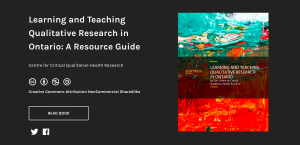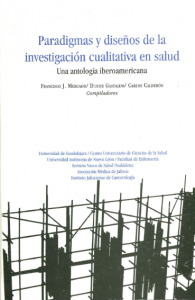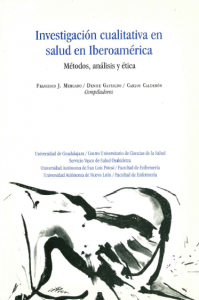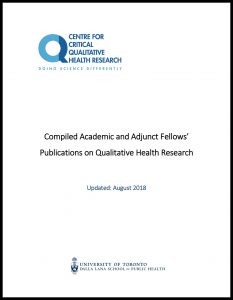Key Readings on Indigenous Ways of Thinking, Methodologies and Decolonization
Key Readings on Indigenous Ways of Thinking, Methodologies and Decolonization
Created with contributions by (in alphabetical order) Rupaleem Bhuyan, Angela Mashford-Pringle, Denise Gastaldo, Jennifer Poole, and Izumi Sakamoto.
Indigenous Ways of Knowing and Methodologies:
Absolon, Kathy. (2019). Reconnecting to Creation: A spirit of decolonizing. In Profitt, N. J., & Baskin, C. (Eds.). Spirit in the political quest for a just world: Spirituality and social justice. Toronto, ON: Canadian Scholars’ Press.
Absolon, Kathy & Dion, Susan. (2017). Doing Indigenous-community research partnerships: A cautionary tale. Engaged Scholar Journal, 3(2): 81-99.
Archibald, L. (2006). Decolonization and healing: Indigenous experiences in the United States, New Zealand, Australia and Greenland. Ottawa, Canada: Aboriginal Healing Foundation.
Archibald, J.A., J. Lee-Morgan & J. De Santolo (Eds) (2019). Decolonizing Research: Indigenous storywork as methodology. London: Zed Books.
Bastien, B. (2005). Blackfoot ways of knowing: The worldview of the Siksikaitsitapi. Calgary: University of Calgary Press.
Blackstock, C. (2007). The breath of life versus the embodiment of life: Indigenous knowledge and western research. Unpublished paper. Montreal: McGill University.
Brim, W. & Harrison, P. (2015). Indigenous Ways of Living vs. the Human Commodity or Perhaps you should burn your PhD? Theory in Action, Vol. 8(2), pp. 1-20. http://dx.doi.org/10.3798/tia.1937-0237.15007
Brusin, Joyce Helena. (2012). How Cultural Competency Can Help Reduce Health Disparities. Radiologic Technology, 84(2): 129-147.
Chilisa, B. (2012). Situating knowledge systems. In Indigenous research methodologies (pp. 1-43). Thousand Oaks: Sage.
Koleszar-Green, R. What is a guest? What is a settler? Cultural and Pedagogical Inquiry, 10(2): 166-177.
Kovach, M. (2005). Emerging from the margins: Indigenous methodologies. In L. Brown & S. Strega (Eds.) Research as resistance (pp. 19–36). Toronto, Canada: Canadian Scholars’ Press.
Lavallée, L. F (2009). Practical Application of an Indigenous Research Framework and Two Qualitative Indigenous Research Methods: Sharing Circles and Anishnaabe Symbol-Based Reflection. International Journal of Qualitative Methods, 8(1): 21-40.
Mitchell, F. M. (2018). Engaging in indigenous CBPR within academia: A critical narrative. Affilia: Journal of Women and Social Work, 33(3): 379-394.
Peltier, C. (2018). An application of two-eyed seeing: Indigenous research methods with participatory action research. International Journal of Qualitative Methods, 17: 1–12.
Simpson, L. (2014). Land as pedagogy: Nishnaabeg intelligence and rebellious transformation. Decolonization: Indigeneity, Education & Society, 3(3), 1-25.
Smith, L. T. (1999). Decolonizing methodologies: Research and indigenous peoples. Dunedin, New Zealand: University of Otago Press.
Tuck, E., & Yang, K. W. (2012). Decolonization is not a metaphor. Decolonization: Indigeneity, education & society, 1(1).
Wilson, Shawn (2008). Research is ceremony: Indigenous research methods. Fernwood Publishing.
Decolonization:
Beltrán, R. (2019). “I (We) refuse to be silenced”: Poetic self-reflexivity as a feminist tool of resistance. Affilia, 34(2), 145-150.
Cruz, Mariolga Reyes. (2008). What if I just cite Graciela? Working toward decolonizing knowledge through a critical ethnography. Qualitative Inquiry, 14(4): 651-658.
Fals-Borda, O. & Rahman, M. (Eds.) (1991). Action and Knowledge. Breaking the Monopoly with Participatory Action Research. New York: Apex.
Grosfoguel, R. (2013). The structure of knowledge in westernized universities: Epistemic racism/sexism and the four genocides/epistemicides of the long 16th century. Human Architecture, 11(1), Article 8.
Hunt, S. and Holmes, C. (2015). Everyday decolonization: Living a decolonizing queer politics. Journal of Lesbian Studies, 19(2), 154-172.
Lincoln, Y. S. & González y González, E. M. (2008). The Search for Emerging Decolonizing Methodologies in Qualitative Research: Further Strategies for Liberatory and Democratic Inquiry. Qualitative Inquiry, 14(5), 784–805. https://doi.org/10.1177/1077800408318304
Mbembe, A. (2015). Decolonizing Knowledge and the Question of the Archive. Rozenberg Quarterly. Retrieved April 28, 2021, from https://rozenbergquarterly.com/decolonizing-knowledge-and-the-question-of-the-archive-podcast-decolonizing-the-university/
Mignolo, W. D. (2009). Epistemic disobedience, independent thought and de-colonial freedom. Theory, Culture & Society, 26(7-8), 1-23.
Santos, Boaventura de Souza (2018). The End of the Cognitive Empire: The Coming of Age of Epistemologies of the South. Durham and London: Duke University Press, 2018 (part 2 – postabyssal methodologies).
Zavala, M. (2013). What do we mean by decolonizing research strategies? Lessons from decolonizing, indigenous research projects in New Zealand and Latin America. Decolonization: Indigeneity, Education & Society, 2(1), 55–71.
E-Book on Qualitative Research
“Learning and Teaching Qualitative Research in Ontario: A Resource Guide”
Funded by eCampus Ontario, CQ has created an ebook Learning and Teaching Qualitative Health Research in Ontario, a repository of qualitative research courses available across health sciences faculties in Ontario. It also includes an introduction to qualitative methods and educational videos that cover CQ’s key pillars: foundations of qualitative inquiry, doing qualitative research and data analysis and interpretations, along with personal stories from students about learning qualitative research.
The publication is aimed at graduate students and postdoctoral fellows who want additional or advanced training and masters-prepared healthcare practitioners who may want to enhance their opportunities for research collaborations and expand their repertoire of research skill.
The book is intended to familiarise users with qualitative research methodologies and methods, course offerings in health sciences faculties in Ontario universities, and the registration information and process. It includes educational and support materials in the form of videos and selected preparatory readings on qualitative research as well as examples of empirical contributions of qualitative methods to the health sciences.
View or download the book here http://qualitativeresearchontario.openetext.utoronto.ca/ . It can be navigated via the table of contents tab.
Finally, eCampusOntario is gathering data to support ongoing funding from the government for open source initiatives. You can help by reporting any use you make of the book or videos here: https://openlibrary.ecampusontario.ca/report-an-adoption/
Compiled Fellows' Publications
CQ Academic and Adjunct Fellows have written extensively about qualitative methodology applied to the health sciences. While some are books, chapters, or articles dedicated to methodological development, other publications offer illustration of possible uses of qualitative inquiry in the health domain. A few features mark most of CQ Fellows’ work: an explicit theoretical orientation, commitment towards critical inquiry, and the advancement of methods for the health sciences. To view a compiled list of CQ Academic and Adjunct Fellows’ publications, click on the image below.
Publications on Teaching
Hsiung, Ping-Chun. (2015a). Lives & legacies: A digital courseware for the teaching and learning of qualitative interviewing. Qualitative Inquiry, 22(2), 132–139.
Hsiung, Ping-Chun. (2015b). Teaching qualitative research as transgressive practices: Introduction to the special issue. Qualitative Inquiry, 22(2), 59-71
Spanish
Antología Iberoamericana de Investigación Cualitativa en Salud (a seguir en español)
Anthology of Ibero-American Qualitative Health Research
In tribute to the memory of Dr. Francisco Mercado, University of Guadalajara, remarkable QHR researcher and teacher, the two volumes of  the anthology originally published in 2002 are now available online (articles in Spanish and Portuguese).
the anthology originally published in 2002 are now available online (articles in Spanish and Portuguese).
How to cite:
Mercado, F. J., Gastaldo, D., & Calderón, C. (Eds.) (2002). Investigación cualitativa en salud en Iberoamérica. Métodos, análisis y ética [Qualitative health research in Ibero-America. Methods, analysis and ethics]. Universidad de Guadalajara/Centro Universitario de Ciencias de la Salud, Universidad Autónoma de Nuevo León/Facultad de Enfermería, Servicio Vasco de Salud Osakidetza, Asociación Médica de Jalisco, Instituto Jalisciense de Cancerología, 517pages. ISBN 970-27-0137-6. Available at: https://ccqhr.utoronto.ca/resources/publications
Mercado, F. J., Gastaldo, D., & Calderón, C. (Eds.) (2002). Paradigmas y diseños de investigación cualitativa en salud. Una antología iberoamericana [Paradigms and designs in qualitative health research–An Ibero-American anthology]. Guadalajara, Mexico: Universidad de Guadalajara/Centro Universitario de Ciencias de la Salud, Universidad Autónoma de Nuevo León/Facultad de Enfermería, Servicio Vasco de Salud Osakidetza, Asociación Médica de Jalisco, Instituto Jalisciense de Cancerología, 620 pages. ISBN 970-27-0283-6. Available at: https://ccqhr.utoronto.ca/resources/publications/
Antología Iberoamericana de Investigación Cualitativa en Salud
En tributo a la memoria del Dr. Francisco Mercado, Universidad de Guadalajara, notable investigador y maestro de investigación cualitativa en salud, los dos volúmenes de esa antología originalmente publicada en 2002 están ahora disponibles digitalmente.
salud, los dos volúmenes de esa antología originalmente publicada en 2002 están ahora disponibles digitalmente.
Como citar las obras:
Mercado, F. J., Gastaldo, D., & Calderón, C. (Eds.) (2002). Investigación cualitativa en salud en Iberoamérica. Métodos, análisis y ética. Universidad de Guadalajara/Centro Universitario de Ciencias de la Salud, Universidad Autónoma de Nuevo León/Facultad de Enfermería, Servicio Vasco de Salud Osakidetza, Asociación Médica de Jalisco, Instituto Jalisciense de Cancerología, pp. 517. ISBN 970-27-0137-6. Disponible en: https://ccqhr.utoronto.ca/resources/publications
Mercado, F. J., Gastaldo, D., & Calderón, C. (Eds.) (2002). Paradigmas y diseños de investigación cualitativa en salud. Una antología iberoamericana. Guadalajara, México: Universidad de Guadalajara/Centro Universitario de Ciencias de la Salud, Universidad Autónoma de Nuevo León/Facultad de Enfermería, Servicio Vasco de Salud Osakidetza, Asociación Médica de Jalisco, Instituto Jalisciense de Cancerología, pp. 620. ISBN 970-27-0283-6. Disponible en: https://ccqhr.utoronto.ca/resources/publications

